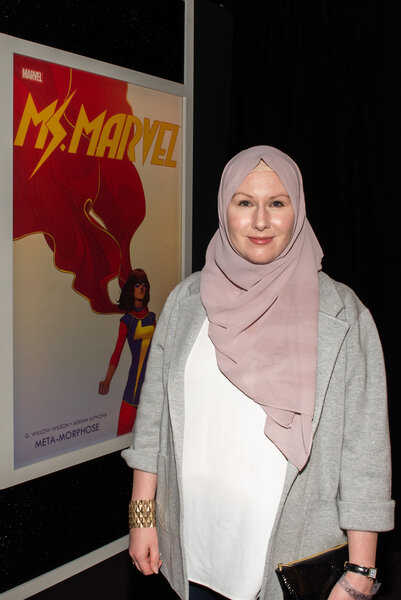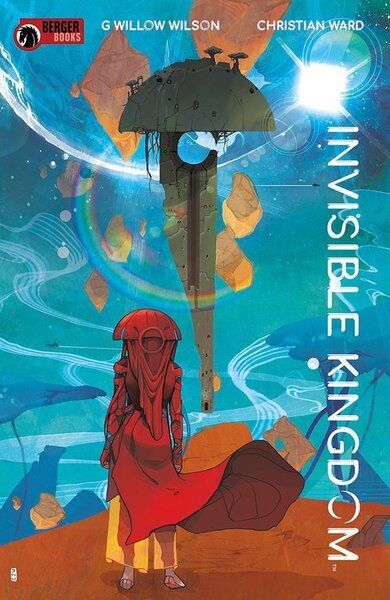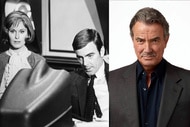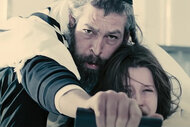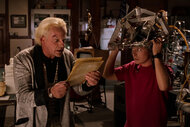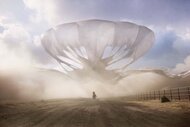Create a free profile to get unlimited access to exclusive videos, sweepstakes, and more!
Leaving Ms. Marvel: G. Willow Wilson discusses the iconic character and how Wonder Woman is different
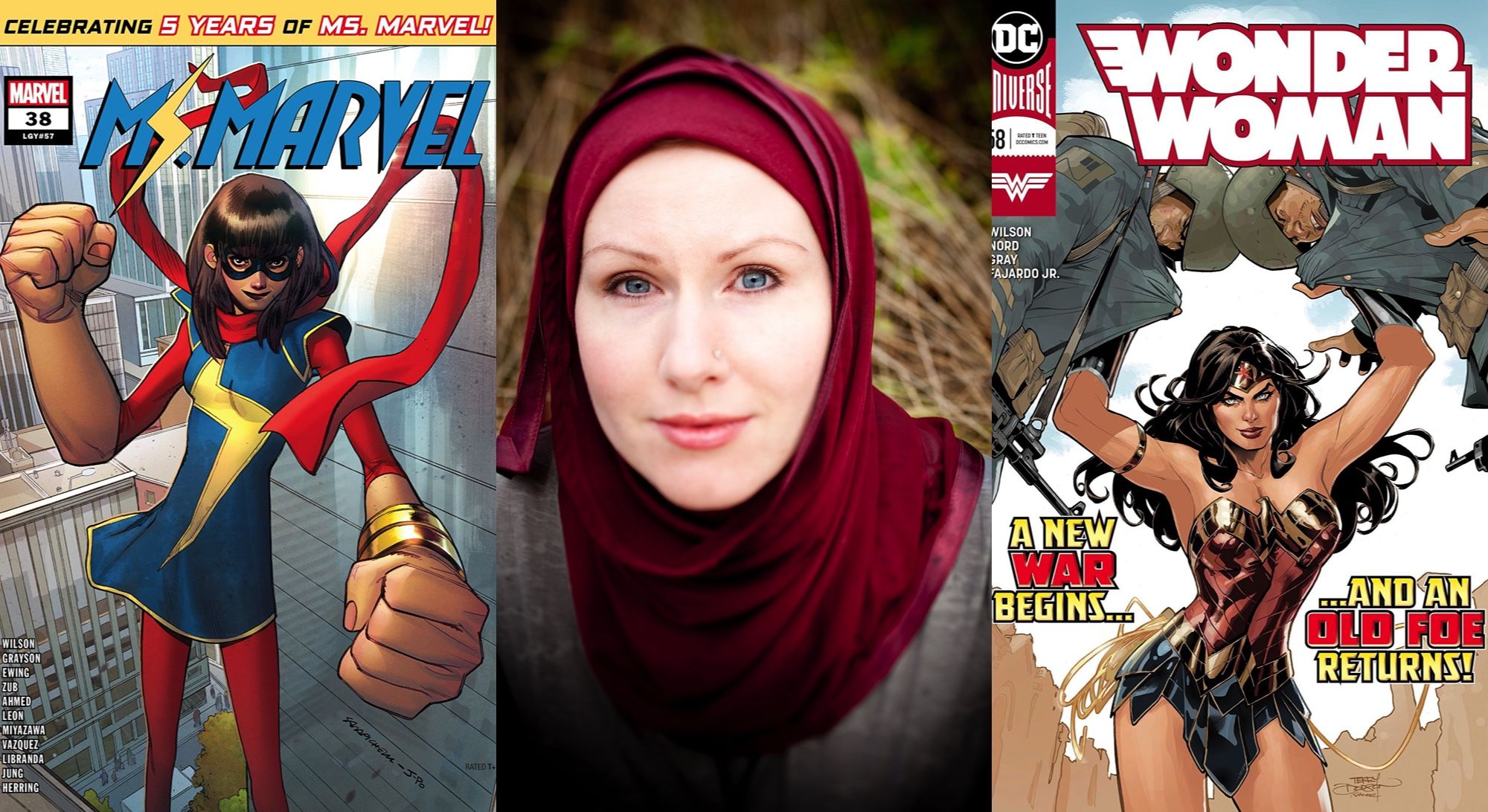
G. Willow Wilson has written a new prose novel, The Bird King, and it's an incredible historical fantasy set in the last Muslim emirate in Spain standing up against the coming of the Spanish Inquisition. You can find the first part of that interview, in which we dig into the book, here on FANGRRLS.
But Wilson is arguably best known for her comics work. In Part II of this interview, we discuss handing Ms. Marvel over to a new creative team, the challenges of writing Wonder Woman, and her new creator-owned sci-fi epic, Invisible Kingdom.
You’re really well-known for your comics work, but you’ve reliably written prose over that period as well. How is your process different in writing prose versus comics?
It’s very different. It’s very different. I feel like I’m exercising different muscles. Well, I know that the brain doesn’t have muscles, but that’s how it feels.
It really does feel like a different set of skills. And in comics what you’re really doing is focusing really hard on structure. Typically in a monthly comic, you have a hard and fast page limit. It’s usually, for a superhero comic, 20 pages, which means it cannot be 19, it cannot be 21, and if it falls long or short, you have to rearrange things so that it is exactly 20 pages. You have to be very conscious of things like page turns because we process images in a very different way from we process prose. So if you want to have, a cliffhanger for example in a novel, it’s very straightforward. You just keep writing.
In a comic book, you have to think, okay, where is this occurring on the page? Because if I have the resolution of the cliffhanger, on a facing page from the cliffhanger itself, that spoils it, because you can immediately see what the outcome is, and there’s no suspense. So I have to make sure that I put that cliffhanger on a page turn so that you have that suspense and the reader is left to wonder, oh my god, what’s gonna happen? Until they turn the page.
So it really is smack dab halfway between, I think, visual art and prose. And you have to, as a storyteller, be conscious of very different things when you move from one to the other.
Your last issue of Ms. Marvel is out now. Why did you decide it was time to step back from the character?
There were several reasons. I’d been on the book for 60 issues, five years, which is… let’s see, 50 issues longer than we originally thought it was going to run. This was originally going to be a 10 issue maxi-series, we thought if we could get a year out of it, and when I say we I’m not trying to sound like the Queen of England, it’s just because Ms. Marvel is really the work of many hands.
And Sana Amanat, in particular, is my editor and co-creator and co-conspirator throughout this whole thing. And so her input was really crucial. I just felt like I had gotten to a point where I was in danger of repeating myself. I would find myself plotting out issues and being like, wait a minute? Has she said this before? This feels really familiar. And I think when you’re working on any kind of serialized storytelling, and you get to that point where you do feel like you’re repeating yourself, it’s time to step away.
And you have to do that when you recognize it, not when it just kind of becomes a shambles, and one of those cautionary tales of, this season of whatever show that really should not have gotten made.
And, you know, I didn’t want Ms. Marvel to become that. I knew that at that point, her future was secure. That Sana and I had really created something that was going to outlive us, and been affected by that in ways that we never expected I think. And so I knew that if I left, and even if she left, Kamala Khan would continue. That she would go on and other storytellers would pick up the baton and take this character to the next level. And so, you know, to me it was really a matter of knowing when to get out of the way.
And not having so much ego that I kind of held on for dear life until the bitter end. And in the process made things difficult for people. And you know, there was storytellers and writers and artists coming up in comics, who are totally changing the way that we look at superhero comics, who are creating dynamics that are so new and so interesting, and as a fan, I really wanted to see them tell the next chapter of Kamala’s story.
Saladin Ahmed is about to launch The Magnificent Ms. Marvel this month, in which he is taking our hero, Kamala Khan, eventually, I think out of Jersey City for the first time. So it’s gonna be really really interesting to see how that goes.
Will you be reading that series? Or will it be too strange to see Kamala in someone else’s hands?
Oh yeah. I will buy every Kamala issue that they release until they stop releasing them. I’m really excited to go from being a writer to being a fan. And it’s just been an honor for me to be a part of something this unexpectedly amazing.
Now you’re writing Wonder Woman — how is that experience different?It is quite different. It’s actually, I think, a lot more different than I was anticipating, for the simple reason that Wonder Woman is a character who has 75 years of history and is almost universally recognizable. Even people who have never picked up a Wonder Woman comic can see her on a movie poster or on a T-shirt and be like, oh, that’s Wonder Woman. So she has a profile that is… legendary. Quite literally. And she’s had a lot of writers. She’s had a lot of artists. A lot of different people have interpreted and reinterpreted her story over the course of those 75 years.
So it felt like I was stepping into very big boots. And also, it feels much more like a custodial role. I’m just kind of here to keep her going, and to see what interesting new stories can be told about this character, who is the age of my grandma.
And to see how that’s changed over the decades. Whereas Ms. Marvel, all of us who worked on that series were creating literally every aspect of the character and her environment and her story from scratch. Nothing was given, nothing was already continuity, nothing was canon, everything was new, and that was simultaneously a lot more and a lot less pressure.
I think the pressure when you have something new, is to get it exactly right, to create a tone and a point of view that is very strong, and recognizable. Whereas when you’re inheriting a character who has tons of history, it’s more a question of, well, what stories are left to tell? What has not been said yet about this character, when so many legendary comic writers and artists have already worked on her? So I think it’s a very different kind of challenge.
And on top of that, you’re also writing a sci-fi comic called Invisible Kingdom with Christian Ward on art. What’s this new series about?
Invisible Kingdom is a sci-fi epic set in a far-flung solar system, in which a large corporation whose trade is sort of delivering consumer goods to all parts of the solar system, at a moment’s notice, which may or may not be, bear similarities to a similar mega-corporation that we’ve all seen, day in and day out, is feuding with this solar system’s largest religion. But while this is going on, a young religious acolyte and an embittered, kind of very cynical freighter pilot, independently stumble on a massive conspiracy between the corporate overlords of this corporation, and the high priests of this religion, and realize that these people who kind of frame themselves as enemies might not be on different sides of the equation after all.
And so, it asks some big questions about the entities that kind of govern our lives from an economic point of view, a spiritual point of view, and yet at the same time, there’s a lot of running around in space, there are giant battles, kind of epic lasers and ships crashing into each other and all that cool stuff, mostly because I wanted to see Christian draw these kinds of things. So it’s very cathartic for me because he’s just such a master of surreal environments and making what we think of as kind of worn-out sci-fi tropes new and interesting and fascinating again.
So, in its DNA, it has, it brings in a lot from Dune, it brings in a certain amount from anime that I really love, the sci-fi anime that was popular in the 90s, Cowboy Bebop in particular. So it’s, there’s a lot going on. It’s a fun romp. It’s visually stunning, thanks to Christian’s, not just amazing linework but amazing colors, he colors his own stuff. So it’s very pretty. And it was again a chance, I think, for both Christian and myself to create a world from scratch.
And not be bound by the continuity that already exists in a shared universe or anything like that, but to kind of say, okay, you know, what if we have a species on this planet that has one gender and they reproduce asexually, kind of like fungi? Or another planet in which we have two symbiotic species who kind of fuse and become one species, and it has four genders? And it was, it’s just fun to be able to ask these absolutely off the wall questions, and not sort of bind oneself to, okay this is just humans in space.
But really, get into kind of like alien morphology, and space travel, and all of this stuff, so it was just a lot of fun. And for me, it was kind of the fulfillment of the lifelong dream of a childhood Star Trek fanatic.
